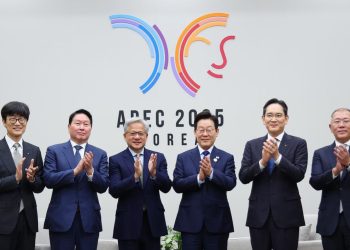South Korea has been ordered by the International Centre for Settlement of Investment Disputes to compensate hedge fund Elliott approximately $108.5 million concerning the 2015 merger of two Samsung subsidiaries.
The court decision granted support to Elliott Investment Management’s demand for approximately $770 million, after the hedge fund filed a lawsuit against the South Korean government regarding the role of the state-run National Pension Service (NPS) in the approval for $8 billion the merger between Cheil Industries and Samsung C&T.
According to the Ministry of Justice in Seoul, the arbitration tribunal determined that South Korea must pay Elliott $53.6 million as damages for the contentious merger. The ruling constitutes approximately 7% of the total claim made by Elliott. Additionally, the tribunal mandated that the South Korean government provide the U.S. activist investor with delayed interest, along with $28.9 million to cover legal expenses.
Elliott, a minority stakeholder in Samsung C&T, filed a lawsuit against the South Korean government in 2018 following their opposition to the merger between Cheil Industries and Samsung C&T. The hedge fund argued that the merger deliberately undervalued the construction firm’s stock price, resulting in significant losses for its shareholders. The transaction was widely perceived as a means to facilitate a smooth transition of power to Lee Jae-Yong, a member of Samsung’s founding family and current executive chairman of Samsung Electronics.
The merger dispute gained further complexity due to allegations of corruption involving former South Korean President Park Geun-hye. Moon Hyung-pyo, a former health and welfare minister, received a confirmed jail sentence from South Korea’s Supreme Court in 2022 for pressuring the state-run National Pension Service (NPS) to approve the merger. Holding a larger stake in Samsung C&T, the NPS played a pivotal role in the approval process and was regarded as a decisive factor.
The specifics of the ruling were not disclosed by the ministry, which stated that it would reveal its plans later. In a statement, Elliott expressed satisfaction with the decision and called upon South Korea to abide by the tribunal’s verdict rather than engaging in unfounded legal actions to contest it.
The Citizens’ Coalition for Economic Justice has expressed its stance: “For the sake of the Samsung owner’s family and Lee’s illegal managerial succession, Korea is on the verge of paying around 130 billion won worth of taxpayers’ money. It is reasonable for Lee’s family and those responsible for the case to make full compensation.”
In response to the ongoing controversy, Samsung issued a statement on Wednesday stating that it has no comments to provide on the matter, emphasizing that the government has not made any specific demands thus far.
Meanwhile, the justice ministry has announced its intention to release an analysis of the recent verdict and outline its subsequent actions soon. However, the ministry’s spokesperson declined to disclose the exact timing of the forthcoming announcement.
Following the notification of the ruling by the international tribunal on Tuesday evening, the justice ministry expressed optimism, characterizing the outcome as a “93 percent victory” for the government.
As the situation unfolds, further developments are awaited, including the government’s analysis of the verdict and the subsequent measures it intends to undertake in response to the arbitration ruling.
The lack of specific demands from the government, combined with the justice ministry’s optimistic assessment, adds to the situation’s complexity and raises questions about the potential implications for all parties involved.







